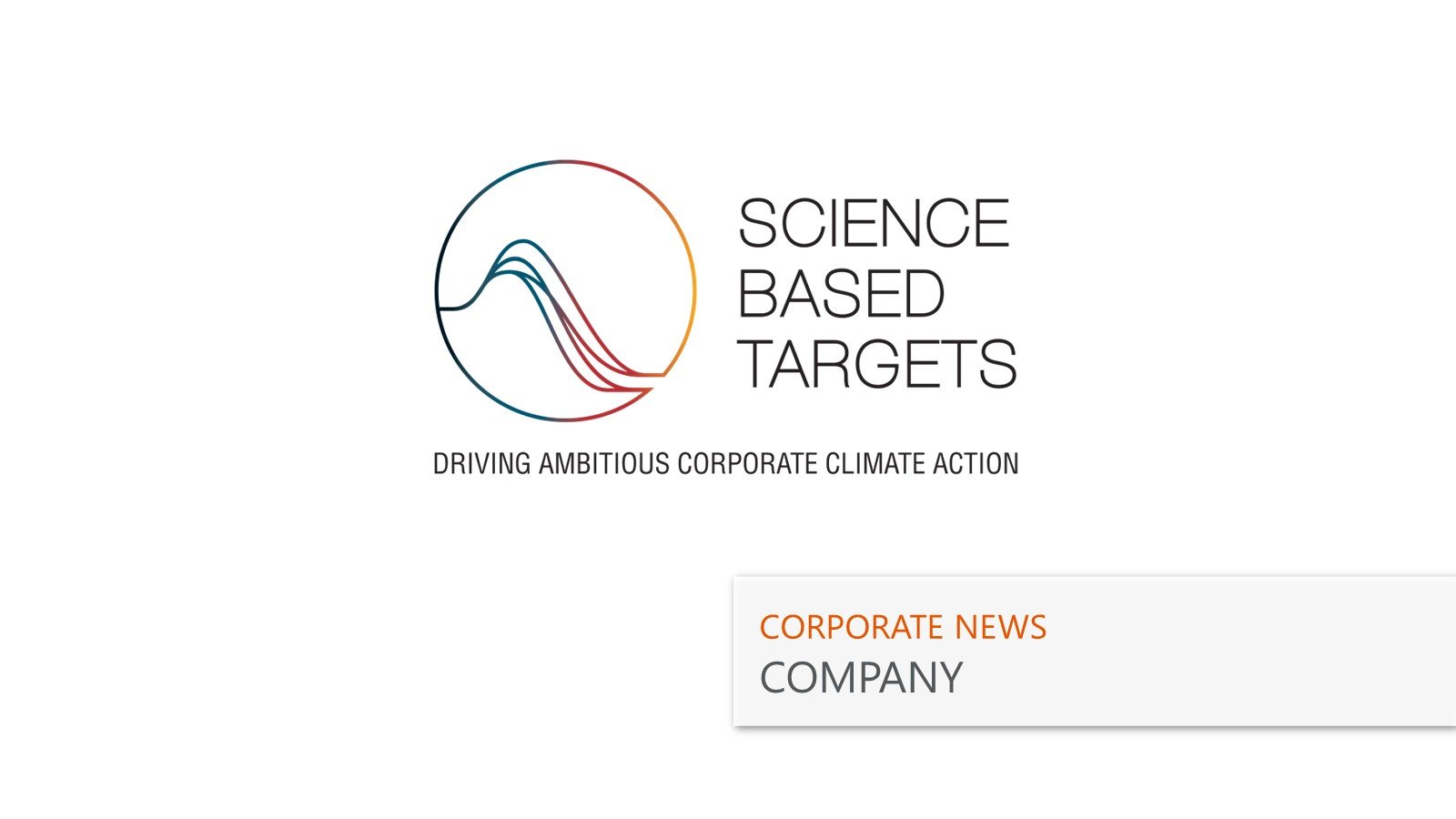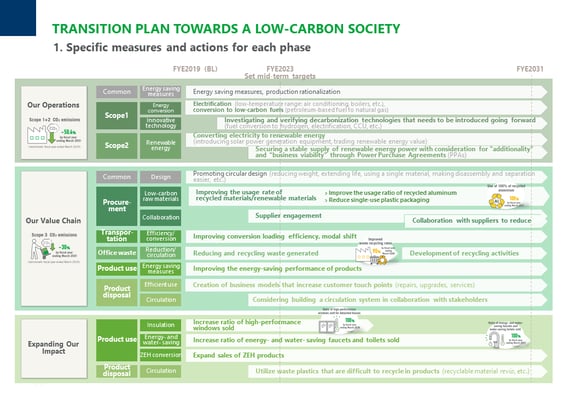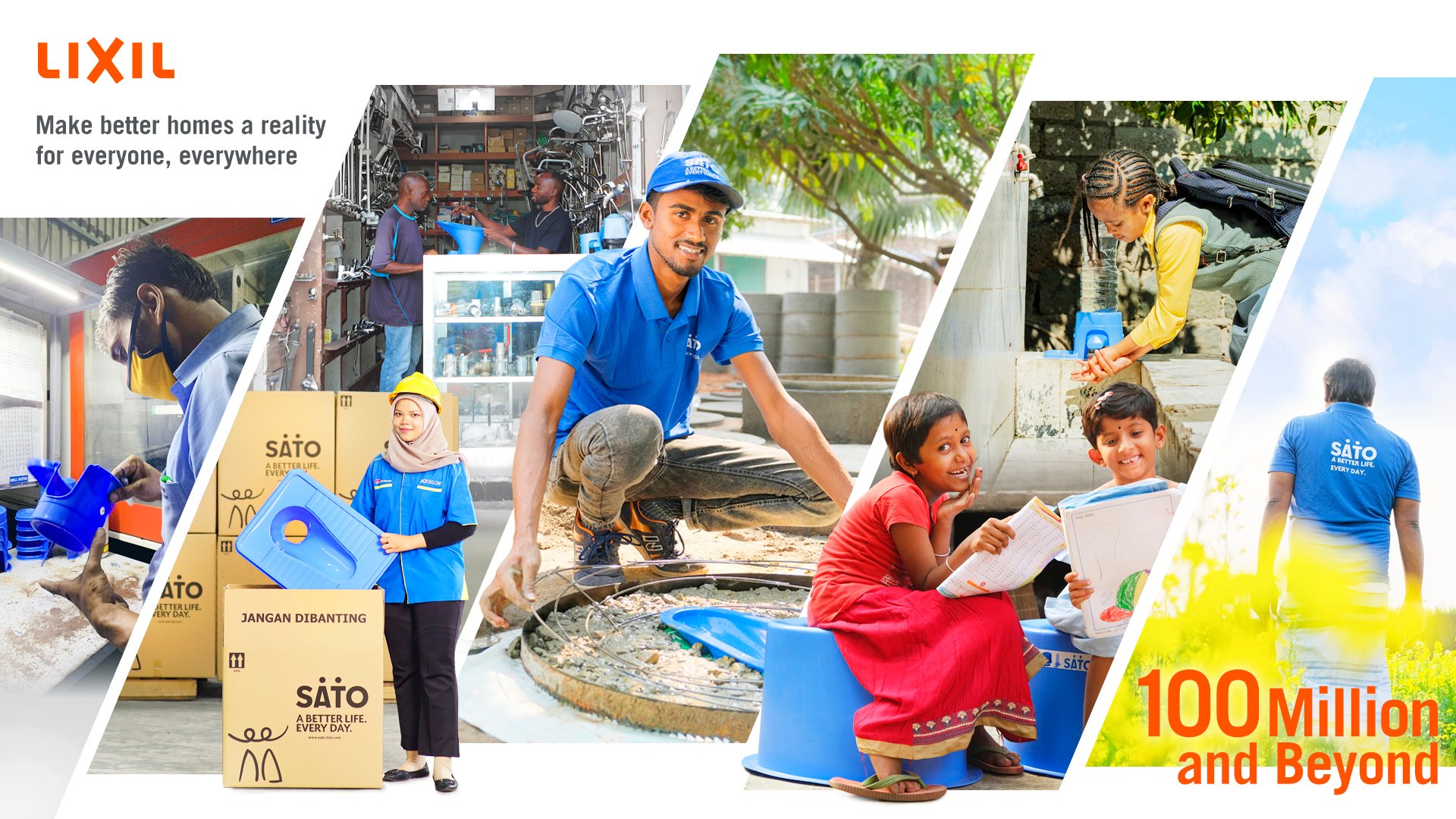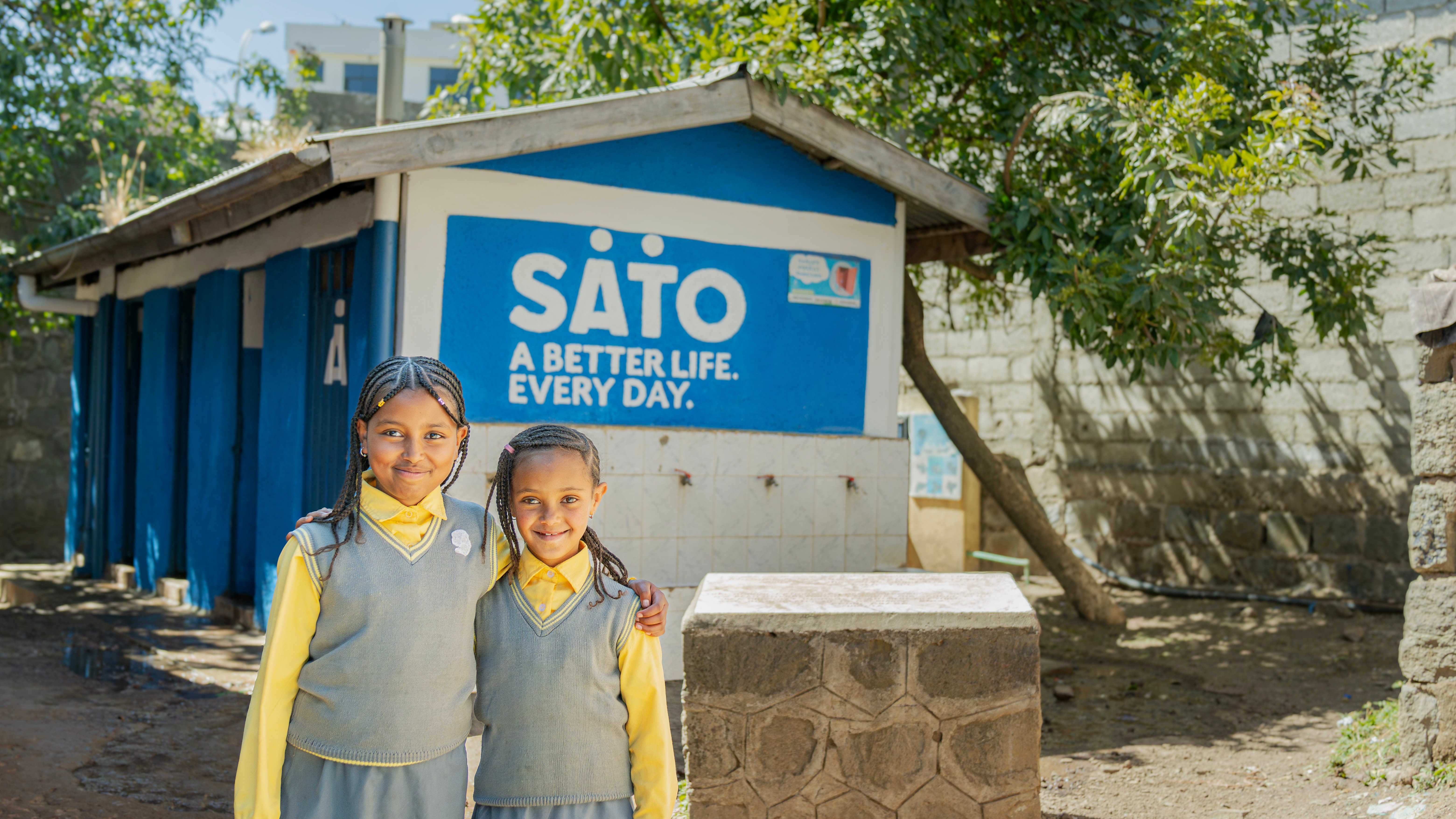LIXIL Becomes First Japanese Building Products Company to Receive SBT Net-Zero Approval for 2050 Zero CO₂ Emissions Target

Promoting the transition to a low-carbon society and for the realization of LIXIL Environmental Vision 2050 of Zero Carbon and Circular Living
Tokyo – LIXIL Corporation (“LIXIL”, TSE Code: 5938) has become the first Japanese company in the Building Products Sector to receive SBT (Science Based Targets) Net-Zero approval¹ in March 2024², based on its long-term target to reach net-zero carbon emissions by 2050. The Corporate Net-Zero Standard is defined as a 90% reduction in Scope 1, 2, and 3 greenhouse gas emissions by 2050, with up to 10% residual emissions reduced to zero through carbon removal³. To date, 458 companies worldwide have been approved, including LIXIL and 6 other companies in the building products sector.⁴
LIXIL's near and long-term targets have now both been approved by the SBT initiative (SBTi) as net-zero science based targets, meeting the quantitative and qualitative criteria.
LIXIL Environmental Vision 2050 for “Zero Carbon and Circular Living'' addresses three focus areas: Climate Change Mitigation and Adaptation, Water Sustainability, and Circular Economy, with new mid-term targets being established in FYE 2023. In parallel, LIXIL renewed its SBT verification for Climate Change Mitigation and Adaptation near-term Scope 1, 2, 3 emission reduction targets by FYE 2031: 50.4% reduction in CO₂ emissions for Scope 1 and 2; and a 30% reduction for Scope 3⁵, driving efforts to transition to a low-carbon society.
The SBTi is a corporate climate action organization that enables companies and financial institutions worldwide to play their part pursuing efforts to limit warming to 1.5°C above pre-industrial levels. SBTi defines international science-based standards which allows companies to set reduction targets to keep global heating below catastrophic levels and reach net-zero by 2050. SBTi stresses the need for a 50% reduction in global greenhouse gas emissions by 2030, based on current levels, to achieve net-zero no later than 2030. SBTi develops standards, tools and guidance which allow companies to set greenhouse gas emissions reductions science-based targets, supports commitments to the 1.5℃ limit, and assesses and validates companies’ targets.
Uchu Mukai, LIXIL Chief Environmental Impact Officer commented “We believe that making better homes a reality for everyone, everywhere is founded on sustainable living in coexistence with nature. At LIXIL, we strive to go beyond simply fulfilling our responsibilities to minimize the environmental burden of our operations, and have made steady progress working together with business partners including suppliers. Our long-term target have now been approved by SBTi as meeting their science-based net-zero standard, and to us this indicates the potential of achieving our Environmental Vision 2050 commitment ’Zero Carbon and Circular Living,’⁶ We will continue to expand our impact by transitioning to a low-carbon society, for today and tomorrow.”
For net-zero emissions by 2050: LIXIL’s transition plan to a low-carbon society
LIXIL has set 2030 as a milestone, implementing various measures to reduce total carbon emissions into three phases: Our Operations, Our Value Chain, and Expanding Our Impact.
In the our operations phase, LIXIL is working to reduce Scope 1 and 2 emissions through energy-saving measures, conversion to low-carbon fuels, by transitioning to and procuring renewable energy with high additionality, and by staging demonstration tests for fuel conversion to hydrogen at our manufacturing sites.
LIXIL’s value chain accounts for a large proportion of its emissions. Driving efforts to mitigate its emissions, LIXIL is reducing energy-use of its products, cutting emissions in procurement and logistics by collecting primary data from suppliers through engagement activities, while devising circular ecosystems and business models.
Additionally, LIXIL has set a 100% product sales ratio target for energy- and water-saving faucets and toilets, and high-performance windows, to contribute to improving energy efficiency for everyday use. LIXIL will continue to expand its impact for climate change and mitigation, and its transition to a low-carbon society.
Visit IR News: LIXIL ESG Briefing 2024 (held April 2, 2024) for more information.

About SBT (Science Based Targets)
These are 5 to 10-year ahead targets to reduce greenhouse gas emissions, set by companies and consistent with Paris Agreement standards. Companies are required to reduce emissions throughout their supply chains. Scope 1 covers direct greenhouse gas emissions by a company itself. Scope 2 covers indirect emissions from the use of electricity, heat, and steam provided by other companies. Scope 3 covers indirect emissions from other companies, which are not covered by Scopes 1 and 2.
¹ Published on SBT website on April 4th
² Base year: FYE 2019
³SBTi CORPORATE NET-ZERO STANDARD
(https://sciencebasedtargets.org/resources/files/Net-Zero-Standard.pdf)
⁴As of April 3, 2024 The Building Products Sector as set by SBT guidelines.
⁵Compared to year ending March 2019 Near-term Commitment SBT certification
(https://newsroom.lixil.com/ja/20230330_environment_update)
⁶The acquisition of SBT Net-Zero approval is in response to the long-term goal of achieving net-zero CO₂ emissions
by 2050, and does not cover the entirety of LIXIL's Environmental Vision 2050 commitment.
Related articles
-
 NEW
NEWLIXIL Reaches Major Milestone in Impact Strategy, Improving Sanitation and Hygiene for 103 Million People Globally
-

Alex Njagi: Why SATO's Sustainable Model is the Future of Sanitation
-

On World Toilet Day 2025, LIXIL Showcases Progress and Innovation in Tackling the Global Sanitation Crisis, Nearing 100 Million Milestone
